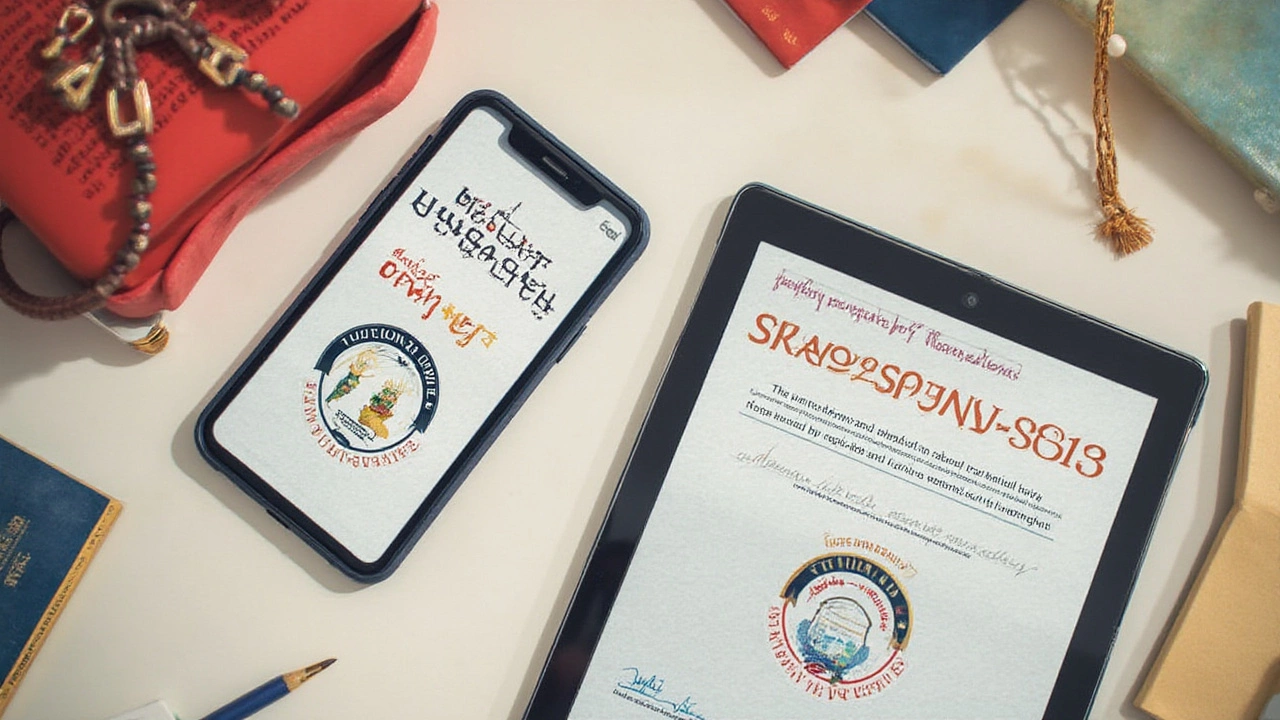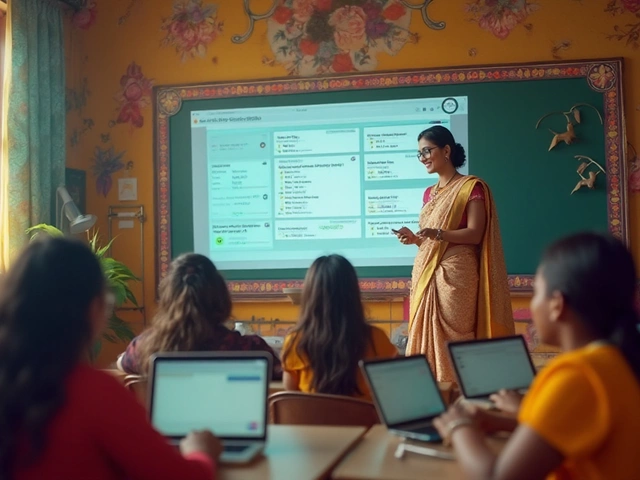What if graduating with a real university degree didn’t mean a mountain of student debt or choosing between your rent and your textbooks? It sounds a bit like a fairy tale, doesn’t it? The shocker: free online degrees are not just clickbait—they’re possible. But, like a no-strings-attached giveaway, there are trade-offs, tough choices, and plenty of fine print you need to know first. The game is changing, and if you know where to look and what to expect, you could score a genuine education for zero tuition, straight from your own laptop.
The Truth About Free Online Degrees
Let’s get straight to it: can you really earn a legitimate degree online without paying tuition? The honest answer is yes, but it’s complicated. A few accredited universities, mostly outside the UK, have taken bold steps to make formal degree courses available at no direct cost. The most famous, University of the People, promises tuition-free study for associate and bachelor’s degrees in Business Administration, Computer Science, Health Science, and Education. Here’s the catch: while the courses themselves cost nothing and materials are provided free, students pay modest fees for application and end-of-term assessments—roughly £90 per exam, with scholarships available if cash is tight. So, not 100% free, but the total cost is a fraction of typical university debt.
That’s just the start. Germany is well-known for its no-tuition public universities, and you’ll even find some fully online offerings for non-German citizens. There’s the International Telematic University UNINETTUNO in Italy, which delivers programs in English and has options for free online content. Further afield, institutions like Anadolu University in Turkey and Open University of Catalonia in Spain dabble in zero-cost or very low-cost online studies for international learners, though the language barrier might be a hurdle unless you’re fluent in Turkish or Spanish.
What about UK universities? Free, fully-accredited online degrees are rare as unicorns. Open University offers plenty of free short courses (OpenLearn), but for a complete degree, you’ll need to pay, though they’re generally much cheaper than traditional universities. Still, a few organisations—such as FutureLearn and Coursera—let you "audit" university programs at no charge, learning from Professor-level experts and completing coursework. The hitch: to receive a recognized degree certificate, a fee usually applies at the end. If a formal bit of paper doesn’t matter, you can absolutely cram your brain with Ivy League-level material.
An interesting fact: MIT was the first major university to make nearly all its course materials free to access online, back in 2001. Their OpenCourseWare initiative sparked a global movement for open educational resources (OERs). While you can’t grab a formal MIT degree this way, you get the exact same lectures, readings, and problem sets, all for free.
If you look beyond degrees to “microcredentials,” digital badges, and certificates, the possibilities explode. Many top-rated platforms—Coursera, edX, Khan Academy, Alison, Saylor Academy, and more—offer fully free courses (sometimes even in partnership with big-name universities like Harvard, Oxford, or Stanford). Some of these stack together to build toward an accredited qualification, though usually there’s a final fee for official assessment or certification.
Check out this table comparing major platforms and their free degree options:
| Institution/Platform | Type of Free Offering | Degree Accredited? | Fees/Costs |
|---|---|---|---|
| University of the People | Full degree programs (online) | Yes (USA-accredited, not UK) | Exam fees, otherwise free |
| Open University (UK) | Short courses via OpenLearn | No (courses only) | Free |
| Coursera/edX | Audit university content | No (unless pay for certificate) | Free to learn, fee for credential |
| MIT OpenCourseWare | All course materials | No | Free |
| UNINETTUNO (Italy) | Some degree programs | Yes (EU-accredited) | Some free, others pay for degree |
| Anadolu University (Turkey) | Online/Distance degrees | Yes | Low tuition, some no tuition |
Why aren’t more universities offering free degrees? It costs money to run courses, keep up technology, and pay staff. The free models are usually supported by philanthropy, national funding, or fees collected for assessments or optional extras. Also, accreditation is tricky: many unaccredited “free degree” mills are scams. So, if you want a credential respected by employers, check the institution’s real status with international agencies like CHEA (Council for Higher Education Accreditation).

Finding and Applying for Free Online Degrees: What to Know
Landing a spot in a free online degree program often means dealing with heavy competition, essays, or proof you’ll actually stick with it. University of the People, for example, requires a high school diploma, English proficiency, and a personal statement—but they accept students from over 200 countries, and the process is much less intimidating than you’d expect. Their courses run in small groups so you still benefit from peer discussion and direct support.
It helps to remember that “free” often means you won’t pay upfront tuition, but application fees, textbook costs, digital proctoring charges, or official transcript fees may sneak up, even if they’re minor compared to traditional universities. If you’re pursuing scholarships (especially at UoPeople), you’ll need to show genuine financial need and commitment to your studies.
Keep an eye out for language requirements. German and Scandinavian universities might offer zero tuition online, but lectures, readings, and exams could be in their national language. Some provide free intensive language courses to help international students catch up, but mastering academic-level German isn’t an overnight job.
Another tip: check course duration and workload. Many free online degrees expect self-paced, flexible study, which is gold if you’re working, caregiving, or juggling other commitments. Yet deadlines for assignments and exams are real—you’ll need to motivate yourself. Some platforms, like edX’s MicroBachelors or FutureLearn, are designed to be "modular" so you can take one block at a time and even stack them toward a future full degree (with credit transfer possible in some cases).
- Look up platform accreditation and employer recognition. Google the degree name and read independent reviews.
- Apply early—free online spaces can fill quicker than you think, and there may be an annual intake only.
- Double-check tech requirements. Some courses need high-speed internet, certain browsers, or proctoring software that might have tricky privacy rules.
- Set up your time and study space in advance. Online doesn’t mean easy—you’ll still hit late-night cramming and group discussion deadlines.
- Don’t pay for anything upfront until you verify the university on the appropriate country’s ministry of education or accreditation council website.
The best insider trick? Jump onto alumni forums and Facebook groups for students in any free or online program you’re interested in. Students share the real scoop—professor quality, assignment load, whether employers actually care if you list Open University or University of the People on your CV. Some even post the timetable week-by-week, letting you spot surprise schedules or time zones halfway across the world.
Don’t fall for diploma mills promising ivy-covered degrees for “processing fees” in days. Real free degrees might be arduous, require several years, or rely on less-flashy institutions, but the result—a credible qualification without debt—is worth the longer path.

Are Free Online Degrees Worth It? Challenges, Recognition, and Future Trends
The biggest question might be: is a free online degree the same as a paid, campus-based one? For certain jobs and postgraduate routes, employers still show preference for traditional degrees—big names like Oxford or Manchester carry weight. Free online degrees, though, have caught the eye of big tech companies and international businesses, many of whom care more about what you can do than where you studied.
One recent survey by IBM found that 56% of employers surveyed considered online degrees "as valuable or more valuable than traditional campus-based ones," especially in fields like IT, business, and data science, where up-to-date skills matter most. Where you might lose out is in hands-on subjects—medicine, engineering, lab science—which still require physical practicals or placements. For these fields, online only gets you so far, though blended approaches (mixing online with short in-person stints) are expanding.
Recognition can also vary by country. A degree from University of the People is properly accredited in the USA but may not be automatically recognised for postgraduate study or jobs in the UK without additional paperwork. If you want to use your degree abroad, check with NARIC (UK ENIC for now), the body that decides equivalency for overseas qualifications here in the UK. Some “free” degrees are accepted without issue, but others may need a statement of comparability or might only be counted as partial credit.
One exciting trend: more universities are experimenting with “open degree” models where students complete micro-courses at their own pace and later combine them for a recognized qualification, sometimes for only the cost of exams. Platforms like FutureLearn and Coursera now work directly with universities to translate certain free courses into official credit—if you ace them and pay the final assessment fee.
If you’re interested in lifelong learning or professional upskilling, you can now build up a “portfolio” of credentials rather than one giant degree—think a Coursera Google IT Certificate for support work, followed by a free edX Harvard Python programming course, then maybe a Saylor Academy financial accounting badge. This way, you remain agile in the job market, beefing up your CV piece by piece—no tuition debt required.
Yet there are pitfalls. Free online learning is notorious for high dropout rates—up to 90% on some mass open online courses (MOOCs). Motivation is key. Without the fear of lost money or a professor who chases late essays, it’s easy to drift away unless you have clear goals and a support network. That’s why peer study groups, regular check-ins, and personal accountability hacks (like asking a friend to quiz you weekly) can make the difference between giving up and graduating.
As of July 2025, the free online degree landscape looks brighter—and definitely busier—than ever. Top universities are piloting new models where anyone can get a top-tier education, no matter where they live or how deep their pockets. Will these disrupt the classic “Ivory Tower” model completely? Not just yet. But for anyone with Wi-Fi, grit, and a burning desire to learn without breaking the bank, the doors are more open than they’ve ever been.
So, is a free online degree right for you? If you demand flexibility, can self-motivate, and are happy to do the legwork on recognition and potential fees, it could be. Dive in smartly, check the details, and maybe swap out debt for opportunity—one course at a time.





